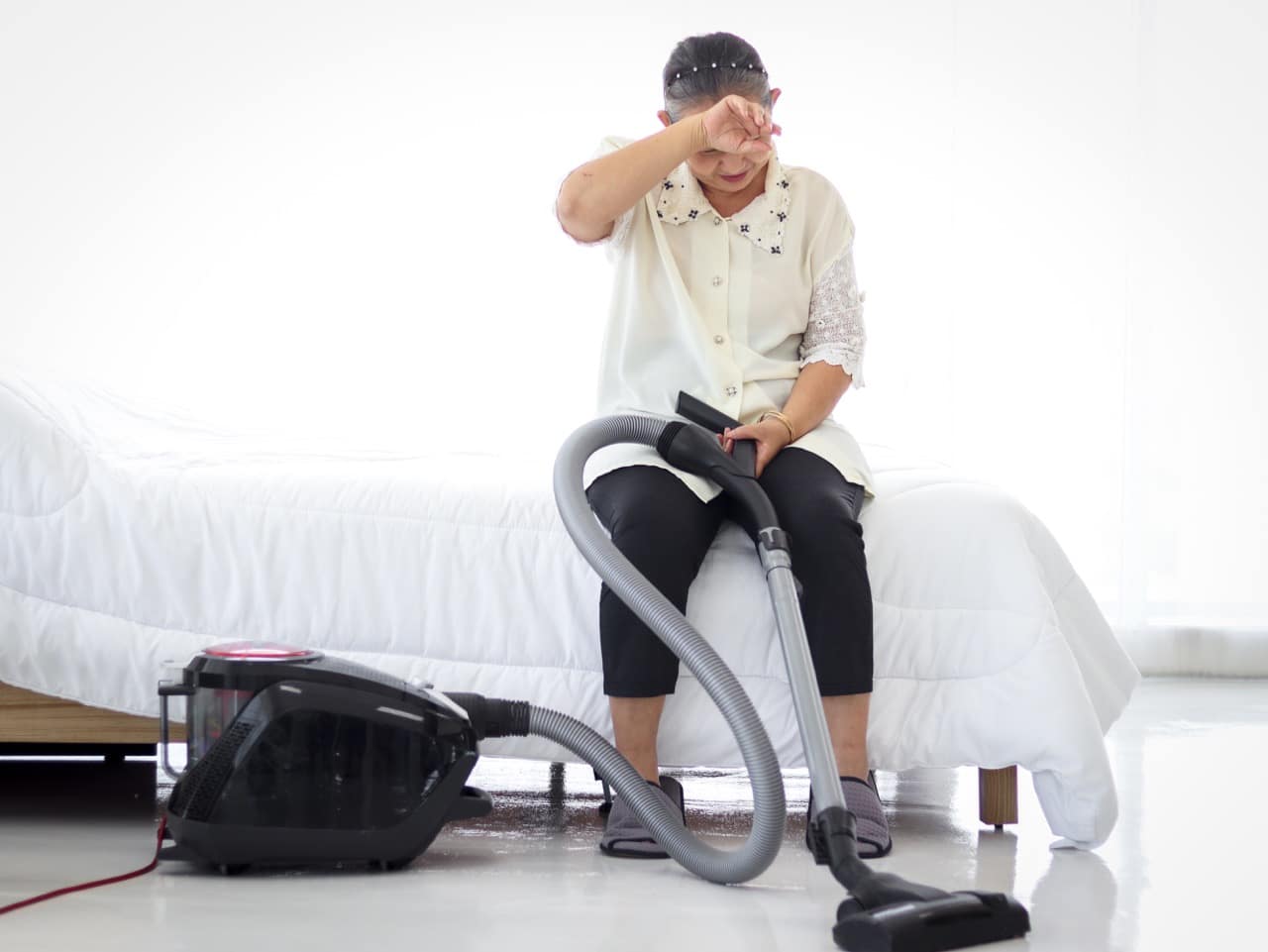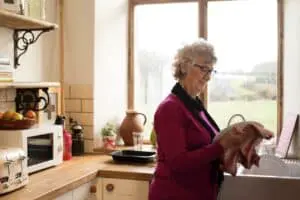As we age, it becomes increasingly important to consider the safety of our activities. Some chores are inherently safer than others, and it’s essential to be aware of which ones are safest for your aging loved ones. In this blog, we will compare safe and non-safe chores, so you can make the best decision for your loved one!
Contents
- 1 What Are Senior-Safe Chores for Seniors?
- 2 What Are Some Non-Safe Chores for Seniors?
- 3 How Do I Determine if a Chore Is Safe for Seniors or Not?
- 4 How Can You Make Sure That Your Elderly Loved Ones Are Staying Safe While Completing Household Tasks?
- 5 Are There Any Other Ways That Families Can Help Their Elderly Loved Ones Remain Independent in Their Own Homes?
- 6 Conclusion
What Are Senior-Safe Chores for Seniors?
Safe chores for seniors include tasks like dusting, vacuuming, and light laundry. These activities are relatively low-impact and don’t require a lot of physical exertion. Additionally, they can be done seated or standing, so they’re perfect for seniors who may have mobility issues.
Seniors need to be careful when doing any type of cleaning, however. Make sure they use proper techniques and don’t over-exert themselves.
For instance, they should use a damp cloth to avoid breathing in dust particles when dusting. And when vacuuming, they should hold the vacuum cleaner close to their body to avoid strain on their back and shoulders.
It’s best to avoid chores that require ladder climbing, such as cleaning windows or changing light bulbs. If your loved one does need to do one of these tasks, make sure they have someone else with them to help.
Other Safe Chores for Seniors:
- Watering plants
- Organizing closets or drawers
- Folding laundry
These chores can all be done sitting down, so they’re perfect for seniors with mobility issues. Plus, they don’t require a lot of physical exertion.
What Are Some Non-Safe Chores for Seniors?

It can’t be denied that many seniors are capable of doing chores around the house. However, some chores are simply not safe for them to do. Here are some examples of non-safe chores for seniors:
- Climbing a ladder to clean gutters or windows
- Mowing the lawn with a power mower
- Using chemical cleaners to clean the bathroom or kitchen
- Attempting any type of home repair
- Doing any kind of yard work that involves lifting heavy objects
These are just a few examples of non-safe chores for seniors. If you’re unsure whether a chore is safe for your elderly loved one to do, it’s always best to err on the side of caution and hire someone to do it for them.
How Do I Determine if a Chore Is Safe for Seniors or Not?
Seniors cherish their independence, which means that many of them want to maintain their homes and yards without assistance. While this is admirable, some chores can be too much for seniors, particularly if they have mobility issues or are dealing with chronic pain.
So, how do you determine which chores are safe for seniors and which ones should be avoided? There are a few things to consider when making this determination:
1. The Level of Physical Exertion Required for the Chore
One of the primary things to consider when determining if a chore is safe for seniors is the level of physical exertion required. A chore requiring a lot of bending, lifting, or twisting may be too much for seniors with mobility issues.
Additionally, if a senior is dealing with chronic pain, any chore that causes additional pain should be avoided. This way, seniors can maintain their quality of life and avoid further injury.
2. Whether the Chore Requires the Use of Harsh Chemicals
Seniors are just not cut out for chores that require the use of harsh chemicals. This is because their skin is thinner and more delicate than younger people, making them more susceptible to rashes, skin irritations, and even chemical burns.
Therefore, seniors should avoid any chore that requires harsh chemicals, such as cleaning the gutters or power washing the house’s exterior.
3. The Risk of Injury Associated With the Chore
Another thing to consider when determining if a chore is safe for seniors is the associated risk of injury. Some chores, such as climbing a ladder to clean the gutters, are simply too risky for seniors.
Not only could they fall and injure themselves, but they could also end up stranded without anyone knowing that they need help.
4. The Amount of Time It Will Take To Complete the Chore
Finally, seniors should also consider the amount of time it will take to complete a chore before deciding if it’s safe for them to do. If a chore is going to take several hours or even all day to complete, it may be best for seniors to hire someone else to do it. This way, they can avoid becoming exhausted halfway through and risking injury.
How Can You Make Sure That Your Elderly Loved Ones Are Staying Safe While Completing Household Tasks?
If you’re worried about your elderly loved ones completing household tasks safely, you can do a few things to help. First, make sure that they have all the necessary safety gear for any chore they plan on doing.
This may include gloves, goggles, and even a dust mask if they work with any powdery substance. Additionally, you should provide them with any tools they may need to complete the chore safely, such as a step stool if they’re going to be reaching for something high up.
You should also check in on your elderly loved ones regularly to make sure that they’re not overdoing it. After all, even if a chore is safe for them to do, they may not be able to complete it if they’re exhausted.
If you notice that they seem to be struggling, offer to help or hire someone else to do the chore for them. Finally, ensure their home is as safe as possible by removing any trip hazards and ensuring that they have a working phone in case of an emergency.
Following these tips can help your elderly loved ones stay safe while they complete household tasks.
Are There Any Other Ways That Families Can Help Their Elderly Loved Ones Remain Independent in Their Own Homes?
There are a few other ways that families can help their elderly loved ones remain independent in their own homes. One way is to allow seniors to complete safe household chores so that they can feel a sense of accomplishment and purpose.
Another way for families to help their elderly loved ones remain independent is to provide transportation to and from doctor’s appointments, the grocery store, or other errands. This can be a huge help for seniors who can no longer drive themselves.
Families can also keep their elderly loved ones socially active by arranging regular get-togethers with friends or family members. Staying social is important to maintaining mental and emotional health as we age.
Conclusion
So, what does this all mean for you? If you’re a senior citizen looking to stay active and healthy, safe chores are definitely the way to go. There are plenty of options available that can help you maintain your independence while still keeping you safe from harm.
Families of seniors who live far away may want to consider hiring professional in-home care services to help with activities of daily living and light housekeeping tasks. This can give you peace of mind knowing that your loved one is being taken care of and isn’t overdoing it with chores around the house. At the end of the day, it’s important to do what’s best for you and your health.

